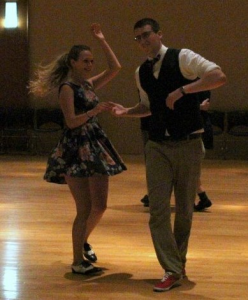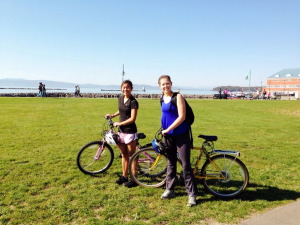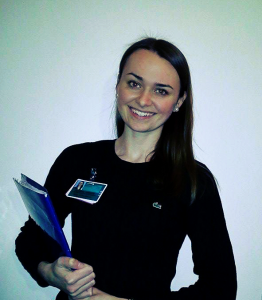A de-stressing downpour
By Allison Giroux
Even after a single mention of finals, groans and sighs from stressed out students can be heard echoing across campus. To put it bluntly, finals can downright stink. It’s easy to become overwhelmed by a nasty combination of stress, lack of sleep, unhealthy and/or irregular eating, and the knowledge that vacation is so close, yet so far away. Fortunately, sometimes experiencing the simplest things can be the best way to recollect and de-stress. One of my favorite memories from being in the Honors College (HCOL) was from a moment that helped me do exactly that.
During finals, the study rooms in University Heights North (UHN) are often occupied for long periods of time by students feverishly pecking away at term papers, memorizing anatomical terms, trying to solve math problems or chemistry reactions, practicing presentations, and more. Despite our beloved air conditioning, the air can get a little thick, or tense, one could say. This was exactly the case on the first reading day of the spring semester of my freshman year. It was a hot, humid day, and I was at the point where I was having a difficult time focusing because I had been studying the same material for so long. Suddenly, it started to pour while the sun was still shining. It was the type of rain that sounds like a train going by. My focus was completely broken. At first, everyone flocked to the windows, but within a minute, that wasn’t enough. The Green Roof was calling, and soon, dozens of HCOL-ers were simultaneously soaking up sunshine and being drenching by the heavy rain. In that moment, there were no term papers or exams, no “do you think there will be a curve?” type questions, and no flipping of flashcards.
The downpour lasted fewer than 10 minutes, but its effects were felt well beyond that. For the rest of the day, I was more relaxed, focused, and productive, and my peers said they felt the same. Such a brief but cleansing downpour will not happen every time stress levels rise, but it’s important to remember to build in ways to de-stress during finals. As I approach my sixth round of finals at UVM, the best study tip I have has nothing to do with flashcards, formulas, or Fibonacci – rather, my advice is to laugh and smile about something completely unrelated. Do something that gets your mind out of a textbook, if even for only a few minutes. I promise your blood pressure and your grades will thank you. Good luck


